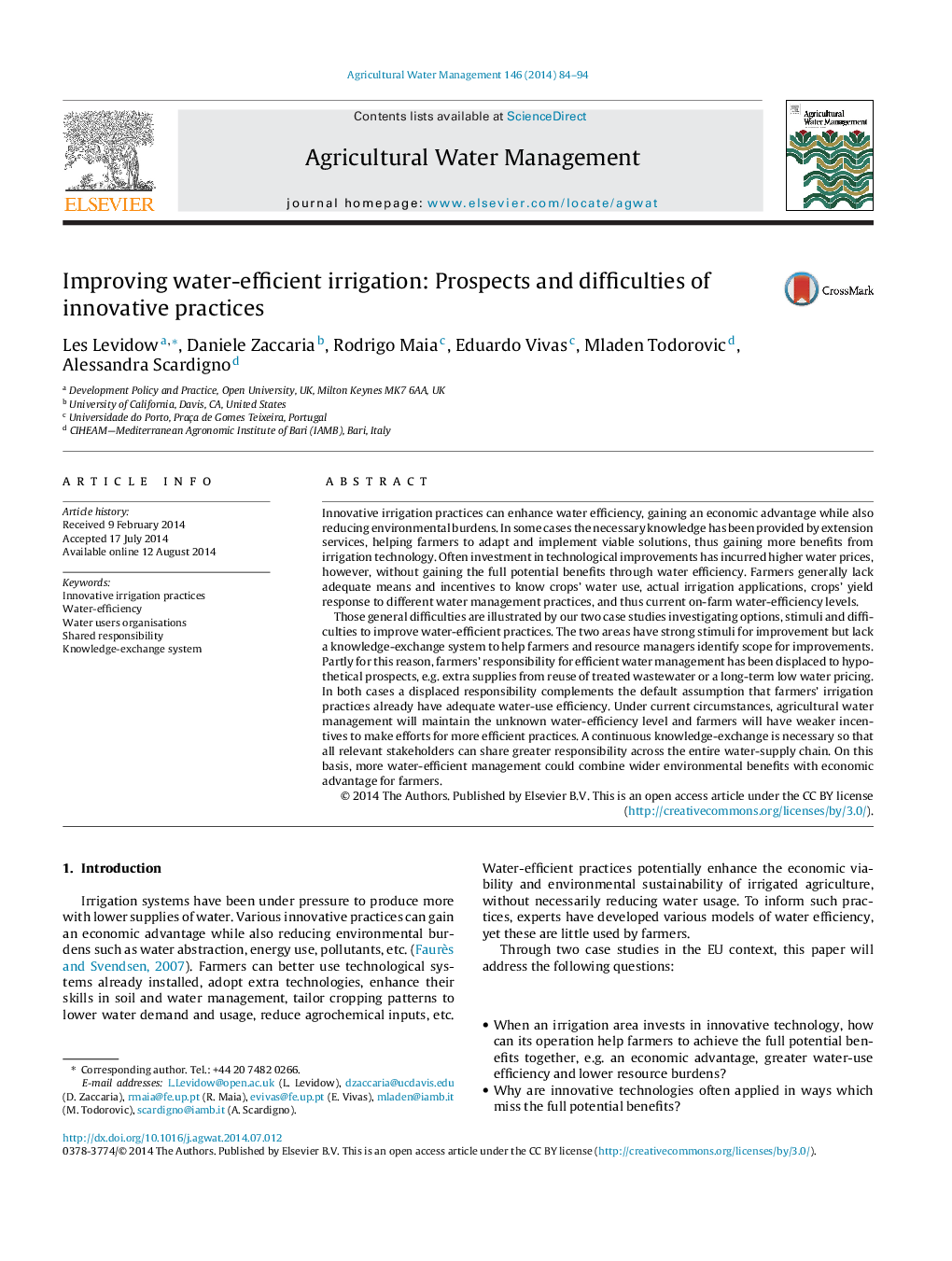| کد مقاله | کد نشریه | سال انتشار | مقاله انگلیسی | نسخه تمام متن |
|---|---|---|---|---|
| 6363939 | 1622933 | 2014 | 11 صفحه PDF | دانلود رایگان |
- Our studies investigated options and difficulties to improve water-efficient practices.
- Technological improvements have not brought full benefits through water efficiency.
- Farmers lack adequate means to know current on-farm water-efficiency levels.
- Farmers have weak incentives to make extra efforts for more efficient practices.
- A knowledge-exchange system is necessary so that stakeholders can share responsibility.
Innovative irrigation practices can enhance water efficiency, gaining an economic advantage while also reducing environmental burdens. In some cases the necessary knowledge has been provided by extension services, helping farmers to adapt and implement viable solutions, thus gaining more benefits from irrigation technology. Often investment in technological improvements has incurred higher water prices, however, without gaining the full potential benefits through water efficiency. Farmers generally lack adequate means and incentives to know crops' water use, actual irrigation applications, crops' yield response to different water management practices, and thus current on-farm water-efficiency levels.Those general difficulties are illustrated by our two case studies investigating options, stimuli and difficulties to improve water-efficient practices. The two areas have strong stimuli for improvement but lack a knowledge-exchange system to help farmers and resource managers identify scope for improvements. Partly for this reason, farmers' responsibility for efficient water management has been displaced to hypothetical prospects, e.g. extra supplies from reuse of treated wastewater or a long-term low water pricing. In both cases a displaced responsibility complements the default assumption that farmers' irrigation practices already have adequate water-use efficiency. Under current circumstances, agricultural water management will maintain the unknown water-efficiency level and farmers will have weaker incentives to make efforts for more efficient practices. A continuous knowledge-exchange is necessary so that all relevant stakeholders can share greater responsibility across the entire water-supply chain. On this basis, more water-efficient management could combine wider environmental benefits with economic advantage for farmers.
Journal: Agricultural Water Management - Volume 146, December 2014, Pages 84-94
